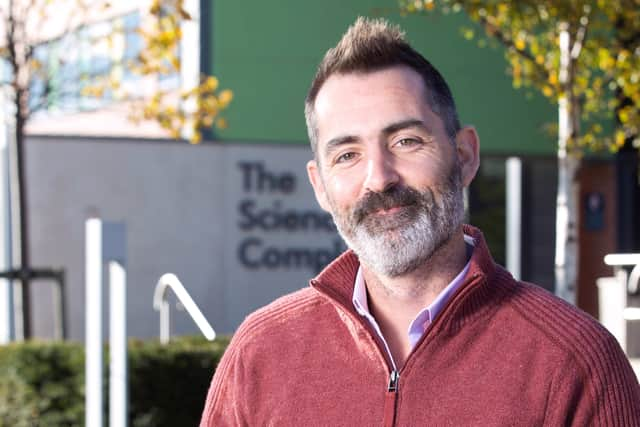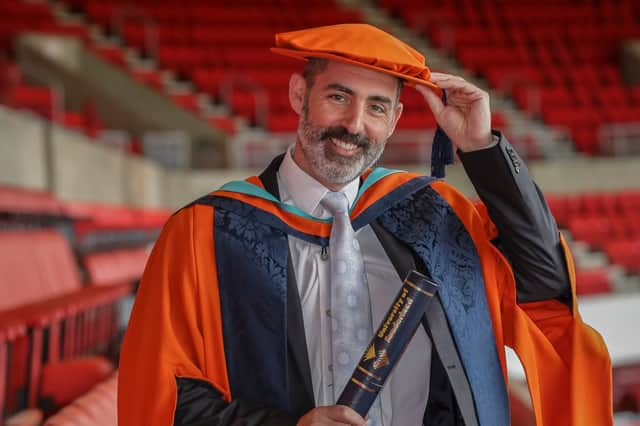University of Sunderland graduate wins share of $3m award for pioneering research into Parkinson's disease
and live on Freeview channel 276
A University of Sunderland graduate has received a prestigious international award and a share of $3m for his pioneering work in the treatment of Parkinson’s disease.
Dr Andrew Singleton, who is now Director at the National Institutes of Health Centre for Alzheimer’s and Related Dementias (CARD), in Maryland, USA, will share the $3 million award with two other researchers for identifying risk genes for Parkinson’s disease.
Advertisement
Hide AdAdvertisement
Hide AdThe discovery has helped scientists understand the role this gene may play in the healthy and diseased brain, as well as developing several potential treatments for Parkinson’s.
Dr Singleton, who graduated from the city’s university with a first-class degree in Applied Physiology, is currently leading an international team of researchers who study the genetics behind Parkinson’s disease and other neurodegenerative disorders.


Known as the ‘Oscars of Science’, Dr Singleton has been awarded the 2024 Breakthrough Prize in Life Sciences for his groundbreaking research.
After receiving the award he said: “I am incredibly honoured, but also thankful for my family, the researchers I’ve been fortunate to work with, the patients who volunteer for these studies, and of course the University of Sunderland and the faculty there who started me on this path.”
Advertisement
Hide AdAdvertisement
Hide AdCongratulating Dr Singleton on his award, Sir David Bell, Vice-Chancellor and Chief Executive of University of Sunderland, said: “This is an outstanding achievement which, quite rightly, has garnered considerable coverage here in the UK; much of which, pleasingly, has highlighted Andrew’s time as an undergraduate at the University of Sunderland.
“Naturally, we are very proud of Andrew and his remarkable scientific success in an area of research that has the potential to improve the lives of millions of people living with Parkinson’s. The Breakthrough Prize is testament to his groundbreaking work."
Dr Singleton has served at the National Institute of Health since 2001. Over the years, he has also studied the genetics behind a variety of other neurodegenerative disorders, including Alzheimer’s, dystonia, and amyotrophic lateral sclerosis.
In 2017 he returned to the University of Sunderland to receive an Honorary Doctorate of Science, in recognition of his pioneering work in the understanding of neurological health disorders.
Advertisement
Hide AdAdvertisement
Hide Ad

Speaking at the time he said: “I’ve been lucky enough to do a job that I love. A job that has allowed me to travel the world, to work with the smartest and most dedicated scientists, and to feel like I’ve made an impact.
“We’ve made incredible progress in diseases like Alzheimer’s and Parkinson’s, and I am now more sure than ever that we will find a cure.
“I am increasingly thankful to the University of Sunderland for helping me start my journey, and for this incredible honour. I love this place.”
Comment Guidelines
National World encourages reader discussion on our stories. User feedback, insights and back-and-forth exchanges add a rich layer of context to reporting. Please review our Community Guidelines before commenting.